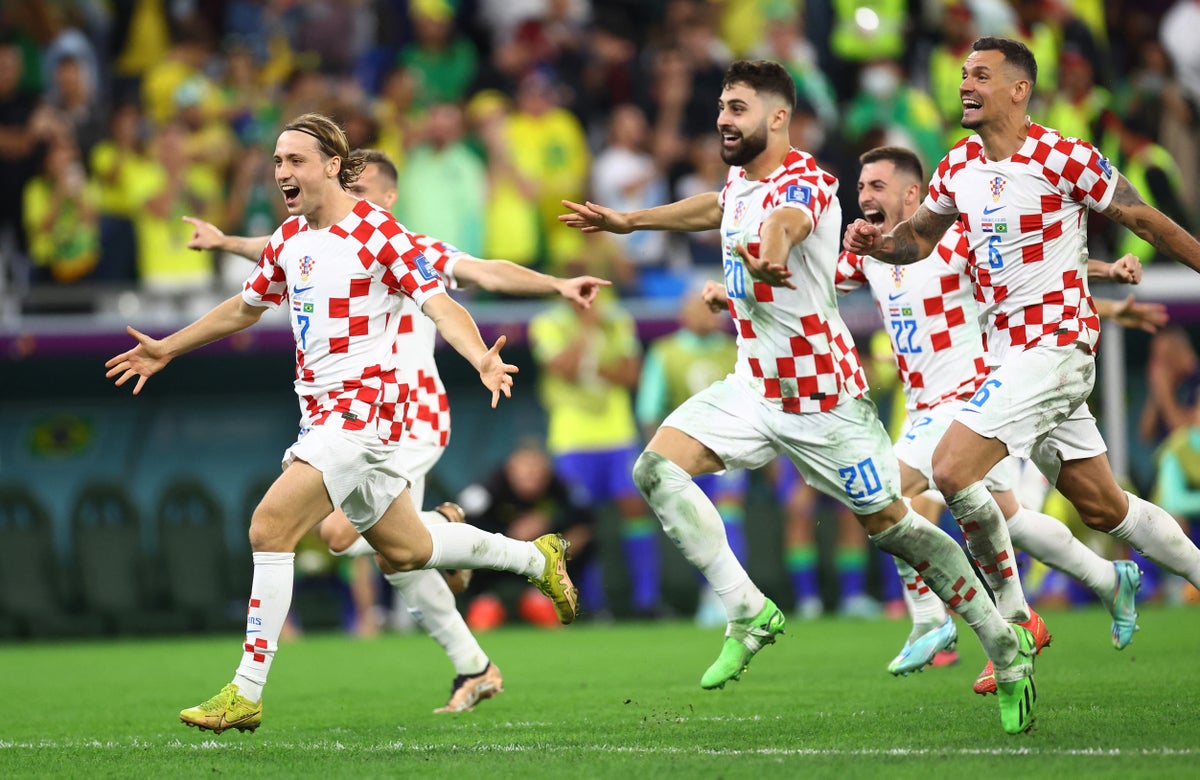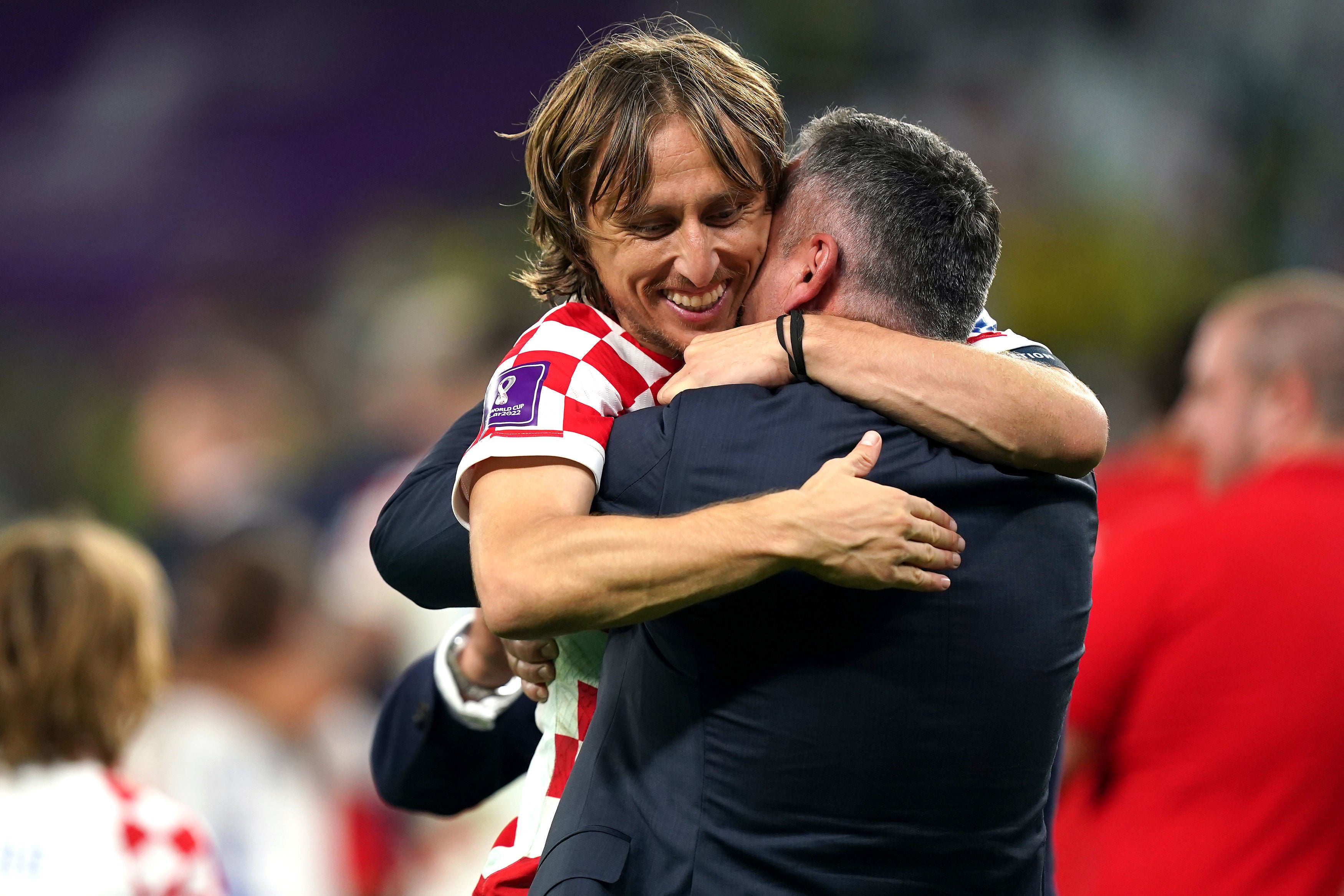
In 1950, as they scarcely need reminding, Uruguay won the World Cup. The crowd at the Maracana when they beat Brazil in what was, in effect, the final is thought to have been around 200,000. To put it another way, almost 10 percent of Uruguay’s population at the time.
It has proved a turning point in the history of the global game, and not merely because every subsequent World Cup has had an actual final. Uruguay have reached subsequent semi-finals in 1970 and 2010, the Netherlands three finals but no smaller country has won the World Cup since. Until now? Probably not, but Croatia, with a population of less than 4 million, are semi-finalists for the second successive tournament and the third time since 1998 and they have been underestimated every time. Go back a generation or two and the Yugoslavia national team used to be referred to as “the Brazilians of Europe” but Croatia have eliminated the actual Brazilians, and without being able to call upon Serbian talent such as Dusan Tadic, Dusan Vlahovic, Sergej Milinkovic-Savic and Filip Kostic, Bosnia’s record scorer Edin Dzeko, Slovenia’s brilliant goalkeeper Jan Oblak or his Atletico Madrid team-mate, Montenegro defender Stefan Savic.
As a country, in its current political entity, Croatia is barely three decades old. As a team, they are the great overachievers of international football. Zlatko Dalic – in a select group of four managers with Luiz Felipe Scolari, Joachim Low and Didier Deschamps to reach successive World Cup semi-finals in the 21st century – has channelled his players’ love of Croatia; if history can be a burden for others, Brazil included, it seems to spur Croatia on. “I said never underestimate us: pride, faith and patriotism,” said Dalic, in what sounded more a political rallying cry than a tactical blueprint. “We are great fighters. Only Croats can do that. This is a victory of the new Croatia.” Goalkeeper Dominik Livakovic struck a similar note. “We are fighters and we played our hearts out,” he said.
There are twin strands to Croatia’s overachievement. They produce a disproportionate number of high-class players. “Croatia has the best midfield in the world,” Dalic argued and certainly Luka Modric, Mateo Kovacic and Marcelo Brozovic offer a calibre of passer few can rival. They outmanoeuvred Brazil, just as they elegantly outplayed England in the 2018 semi-final. There is nothing unusual about seeing Croatian players at Real Madrid, Chelsea, Tottenham, Inter Milan, Bayern Munich or Atletico; football is one of its prime export industries and, in Josko Gvardiol, they have perhaps the most coveted young centre-back in the world. He arrived in Qatar on a fast track to the top and seems to have accelerated.
But there is a second half to this team. Across two shootouts, Livakovic has made four penalty saves to add to his 10 stops during the match against Brazil. He plays for Dinamo Zagreb. So does Bruno Petkovic, scorer of the late leveller against the Selecao. So does Mislav Orsic, who set him up. Josip Juranovic, who got the better of his duel with Real’s Vinicius Junior, plies his trade for Celtic. Nikola Vlasic, who has scored in successive shootouts, is at Torino after underwhelming at Everton and West Ham. Fine clubs all, but not superpowers of the current game. Put a Croatian shirt on each and good if largely unexceptional players are capable of competing in the latter stages of World Cups. Ivan Perisic, who has scored in five successive major tournaments, ranks in the category of very good as a club footballer; as an international, however, he belongs in the bracket of the greats. As Dalic put it: “My players are not normal.”

And Croatia have made the abnormal normal. It may be curmudgeonly to point out they have only won one game in 90, or even 120, minutes. Yet they have not been beaten: not by the favourites, Brazil, the team long ranked first in the world, Belgium, the conquerors of Germany and Spain, Japan, or the other great revelations of this tournament, Morocco.
“Strength of character is part of our team,” Dalic said; so is his own excellence. Give him a club side and he had a fine record, particularly in Saudi Arabia and the United Arab Emirates. Put him in charge of the Croatian national side, however, and he has progressed where Luis Enrique, Hansi Flick and Tite have failed. He has done so with a lesser group of players, without Mario Mandzukic, Ivan Rakitic, Ante Rebic and Sime Vrsaljko.
Croatia have not had a statement performance to rival their 2018 3-0 demolition of Argentina. Instead, they have a rematch with them in a World Cup semi-final. “People are being surprised by our performance for second time in a row,” said Dalic. “It is such a phenomenal thing.” Maybe a country of their size will never be able to repeat it. But maybe Croatia aren’t finished yet.







